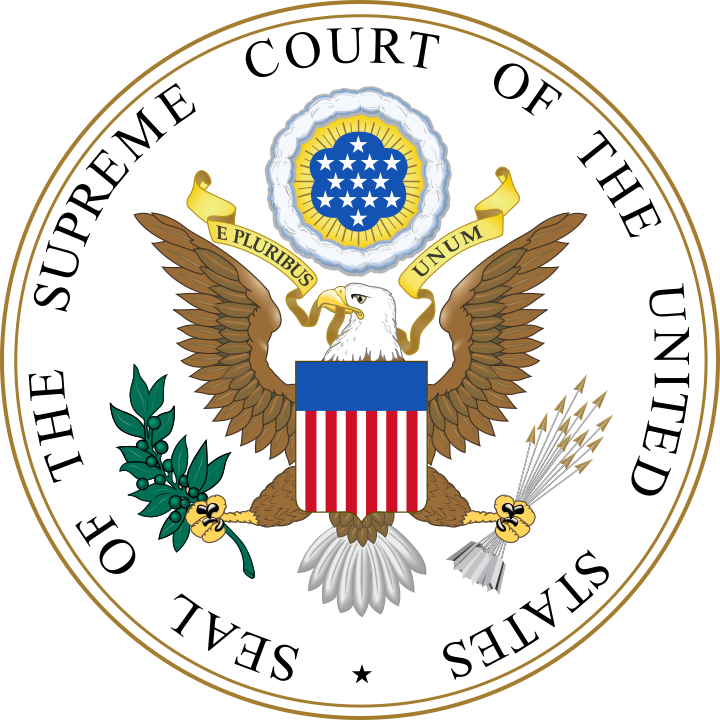
As controversy hangs over US Supreme Court Justice Sam Alito, Jr., like a thick vapor, I cannot help but think about his father, Sam Alito, Sr. (1914-1987). I knew the father and admired him greatly. Indeed, he was a most significant figure in the annals of New Jersey government and politics. Here, I use the word “significant” in a most positive manner and “politics” in a nonpartisan and bipartisan sense.
Sam Alito, Sr. was the first Director of the New Jersey Office of Legislative Services, better known by the initials, “OLS.” He held this position from 1952 until 1984. Under his leadership, OLS became the most outstanding legislative office of its type in America.
One can learn about the wide scope of OLS activity by reading its description in the New Jersey Legislature web site. Among the numerous functions of OLS, the most salient are 1) the drafting of all bills and resolutions introduced into the legislature; 2) general, legal, and fiscal research; and 3) legal opinions.
Born in Calabria, Italy, Sam Alito, Sr. was the quintessence of the American dream. He came to America as a child, earned a Master’s degree at Rutgers and taught high school before arriving at OLS.
As nonpartisan employees of the Legislature, members of the OLS staff are prohibited from engaging in political activity or taking a public position regarding any matter before the Legislature. Sam Alito, Sr. faithfully complied with this mandate. In fact, he was described as being obsessive about avoiding any perception of partisanship in his office.
Accordingly, Sam Alito Senior could and would, in private conversation, give you a brilliant analysis of an election or a current political development. He would never, however, publicly or privately, advocate for the election of any candidate.
Overall, as OLS Director, Sam Alito, Sr. had a stellar reputation. He was described as a human encyclopedia of state demographics and legislative history.
I was first introduced to Sam Alito, Sr. by former Democratic Assemblyman Marty Herman in 1977. Marty would later become a New Jersey Superior Court Judge in 1986.
I have been somewhat remiss in not informing my readers all these years about my relationship with Marty. My readers know about my predilection for sports analogies, so let me put it this way: My all-time favorite baseball manager, Leo Durocher used to call former St. Louis Cardinal and Brooklyn Dodger general manager Branch Rickey,” the big man in my life.” Marty Herman was the big man in my legal and political careers. So let me digress for a few minutes in describing my history with Marty.
I first came to work with the Woodbury law firm of Herman, Pearson, and Crass, of which Marty was the senior partner, in July, 1977, after completing my three-year tour of duty as a lieutenant in the US Navy Judge Advocate General’s Corps. At the time Marty hired me, I was a highly partisan Republican, while Marty was a leading New Jersey Democrat, serving in the second of his six terms in the New Jersey Assembly. I had to disclose that to him, but Marty responded that it would be no problem. He did not require associates in his law firm to share his political views.
Marty also made no grandiose promises in terms of future compensation. Instead, he said, “the one thing I promise you is an education.” And the education I would receive from Marty was invaluable in my future political career as well as my service as a lawyer. If I was sitting in his office with him and he received a sensitive phone call on a political matter, even from Governor Byrne’s office, he would tell me to remain. Watching and listening to Marty in those phone calls was truly observing a legislative and political master at work.
Another Steinberg sports analogy – Marty was reminiscent of my all- time favorite NFL coach, Vince Lombardi. Yes, like Vince, he was a tough taskmaster, because he always wanted you to perform at the very best of your ability. He genuinely cared about his employees, however, and my life was better for the experience of working for Marty Herman.
He also was one of the top five legislators I observed in my nearly fifty years in following the New Jersey Legislature. His successful sponsorship of the New Jersey Generic Drug Law in 1977 was a model for the nation. Later, in 1979, as chair of the New Jersey Assembly Judiciary Committee, he would produce a revision of the New Jersey Criminal Code and the Juvenile Justice Code.
I can say proudly that I am not the only Trenton political player who benefitted from the tutelage of Marty Herman. Two of his legislative aides, Sharon Harrington and Karin Elkis, went on to highly successful careers in both the state governmental and lobbying sectors. The three of us can be described as the Marty Herman Alumni Association.
So one day in August, 1977, Marty stopped by my office and said, “I want you to have lunch with me and a very major figure in the Legislature, Sam Alito.” We proceeded next door to lunch with Sam Alito, Senior, and during that introductory meeting, I was to learn that Sam Alito, Senior was a genius not only at policy but politics as well.
Sam gave us his assessment of the status of the then governor’s race between Democratic incumbent Governor Brendan Byrne and his Republican challenger Ray Bateman. Throughout his discussion, he was most careful to comply with his OLS nonpartisan mandate and advocate for neither candidate. Three months later on Election Day 1977, Sam’s August assessment proved to be remarkably prescient.
After that August, 1977 meeting, Sam would stop by my office whenever he was in Woodbury to meet with Marty. I treasured the opportunity to discuss New Jersey policy and political issues with Sam. He was truly a beloved figure by political and policy players of both parties.
When Sam’s son, Sam Alito, Jr. was nominated by President George W. Bush to the US Supreme Court in November, 2005, he subsequently prior to his confirmation hearings had discussions with Senators in which he cited his father as a role model! Specifically, he described his father’s drafting of a legislative reapportionment plan to comply with the Supreme Court “one man, one vote” mandate. He also emphasized his father’s efforts in college to defend a black basketball player from discrimination on the team. He also pointed to his father as a model of bipartisanship.
Yet in terms of maintaining the appearance of nonpartisanship, a vital function for a Supreme Court Justice, Sam Alito, Jr. has been an abject failure. On the immunity issue, Alito and Justices Clarence Thomas, Brett Kavanaugh, and Neil Gorsuch, comprising the Trumpist Gang of Four, appear hell-bent on granting a right of immunity to authoritarian Donald Trump that appears nowhere in the Constitution.
The immunity efforts of Alito, Jr. and his fellow members of the Trumpist Gang of Four prove them to be total frauds when they claim to be judicial conservatives. The basic idea behind judicial conservatism is to avoid legislating from the bench. Granting Trump an immunity that appears nowhere in the Constitution would be the ultimate act of legislating from the bench. This grant of immunity to Trump would be a violation of both the Textualist conservatism of Antonin Scalia and the Originalist conservatism of Robert Bork.
Samuel Alito, Senior was a man of total goodness and greatness, and his professionalism of OLS was a major enhancement of New Jersey democracy. If Sam Alito, Junior gives Trump the immunity he seeks, he will be enabling Trump to threaten American democracy. We can only hope that Alito Junior thinks of the magnificent legacy of his father and changes his mind on the immunity issue before the decision is finalized.
Alan J. Steinberg of Highland Park served as regional administrator of Region 2 EPA during the administration of former President George W. Bush and as executive director of the New Jersey Meadowlands Commission. He graduated from Northwestern University and the University of Wisconsin Law School.
(Visited 4 times, 4 visits today)
Sam Alito, Sr. and his son, Samuel Alito Jr., are both prominent figures in the legal world. While they share the same name and profession, there are some key differences between the two that are worth exploring.
Sam Alito, Sr. is a retired New Jersey Superior Court judge who served on the bench for over 30 years. He was known for his fair and impartial rulings, as well as his dedication to upholding the rule of law. During his time on the bench, he earned a reputation as a tough but fair judge who was not afraid to make difficult decisions.
On the other hand, Samuel Alito Jr. is currently serving as an Associate Justice of the Supreme Court of the United States. He was nominated to the court by President George W. Bush in 2005 and has since become known for his conservative views and strict interpretation of the Constitution. Justice Alito has been involved in several high-profile cases during his time on the court, including cases involving abortion rights, gun control, and religious freedom.
Despite their differences in judicial philosophy, both Sam Alito, Sr. and Samuel Alito Jr. are highly respected in their respective fields. They both have a deep understanding of the law and a commitment to justice, albeit with different approaches. Insider NJ, a leading political news website in New Jersey, has provided valuable insights into the careers and personalities of both men.
In an article published by Insider NJ, it was noted that Sam Alito, Sr. was known for his humility and dedication to public service. He was praised for his integrity and his willingness to listen to all sides of an argument before making a decision. His son, Samuel Alito Jr., was described as a brilliant legal mind with a keen understanding of constitutional law. While he may be more controversial in his views, he is respected for his intellect and dedication to the law.
Overall, the comparison between Sam Alito, Sr. and his son highlights the diversity of perspectives within the legal profession. While they may have different approaches to interpreting the law, both men have made significant contributions to the field of law and have earned the respect of their peers. Insider NJ’s coverage of their careers provides valuable insights into the lives and legacies of these two influential figures in the legal world.



